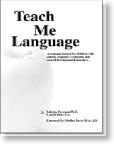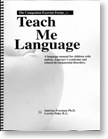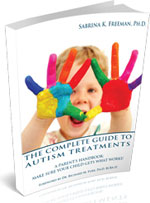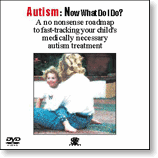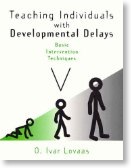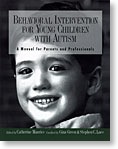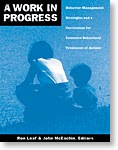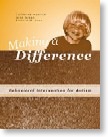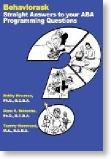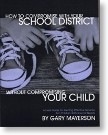Since when did "cure" become the standard for funding treatment?
15/12/11 09:47 Filed in: autism | Asperger's Syndrome
Once again, the media completely miss the point when it comes to autism. I was recently outraged when I read an article from the LA Times, doing a sophisticated hatchet job on intensive behavioral treatment. In the article they describe the work of Dr. Ivar Lovaas and speak of the amazing result of lobbyists in California who successfully fought to have a law passed that requires private health insurers to include autism treatment coverage. Instead of praising the end of health care insurance discrimination against the neurologically disabled, the LA Times questions the effectiveness of medically necessary autism treatment -- Applied Behavior Analysis.
The Times’ argument goes something like this:
Researchers have established that the therapy can improve behavior, language and intelligence test scores. But no scientist using the gold standards of medical research has reproduced the success rate reported by Lovaas.
First of all, this type of thinking shows a complete lack of understanding regarding science. The replications of Lovaas’ work done by researchers around the world demonstrate, unequivocally, that in every single well-designed study the experimental group benefit tremendously as opposed to the control group.
Second, the LA Times disparagingly describes how hope of “recovery” is a powerful motivator and a valuable marketing tool for companies that provide ABA services. So what! Every medical center advertises based on the goal of prospective recovery from a given disease!
What is relevant is the fact that thousands of children have benefitted and continue to benefit from effective behavioral treatment each and every day. These gains are supported by data! Based on this article, it is clear that the LA Times thinks children with autism are children of a lesser God.
How else can we describe the complete double standard when it comes to autism. Only where autism is concerned, does “recovery” mean success and substantial improvement mean failure! If we were to exchange the word autism with cancer, a treatment that prolongs someone’s life perhaps 2 or 3 years would be considered a success, even though the person ultimately passes away. Yet with autism, substantively improving the child’s condition, possibly enabling a life with dignity for their 85 years, is considered failure and not worth the money!
What is really going on becomes quite clear at the end of the Times article to those in the autism field. The researcher, Sally Rogers, who is known for a competing treatment that lacks the evidence of ABA, states:
If all our interventions are based on one-to-one therapy for vast hours”..., “very few children are going to get their needs met.”
And there you have the pernicious crux of the Times-endorsed reasoning: if the best -- and singularly proven -- autism treatment is too costly and time consuming, then it should not be recommended systemically. If every child can’t receive the treatment, no child should. This is worse than rationing treatment. This is actually denying the most effective treatment for autism! It is anti-intellectual and anti-science and has no place in the debate!
Instead of this researcher supporting the fight to force health care providers to cover medically necessary autism treatment, she essentially argues that most children should be sacrificed insofar as vast hours of one-to-one therapy are deemed to be impractical for the “greater good” of most children. Bunk! I suggest that if she is so pessimistic about our children’s right to treatment for their core health need, she needs to find a field where she will be better able to contribute, rather than remain a researcher who argues for limiting treatments that work and pushing treatments that don’t.
The Times’ argument goes something like this:
Researchers have established that the therapy can improve behavior, language and intelligence test scores. But no scientist using the gold standards of medical research has reproduced the success rate reported by Lovaas.
First of all, this type of thinking shows a complete lack of understanding regarding science. The replications of Lovaas’ work done by researchers around the world demonstrate, unequivocally, that in every single well-designed study the experimental group benefit tremendously as opposed to the control group.
Second, the LA Times disparagingly describes how hope of “recovery” is a powerful motivator and a valuable marketing tool for companies that provide ABA services. So what! Every medical center advertises based on the goal of prospective recovery from a given disease!
What is relevant is the fact that thousands of children have benefitted and continue to benefit from effective behavioral treatment each and every day. These gains are supported by data! Based on this article, it is clear that the LA Times thinks children with autism are children of a lesser God.
How else can we describe the complete double standard when it comes to autism. Only where autism is concerned, does “recovery” mean success and substantial improvement mean failure! If we were to exchange the word autism with cancer, a treatment that prolongs someone’s life perhaps 2 or 3 years would be considered a success, even though the person ultimately passes away. Yet with autism, substantively improving the child’s condition, possibly enabling a life with dignity for their 85 years, is considered failure and not worth the money!
What is really going on becomes quite clear at the end of the Times article to those in the autism field. The researcher, Sally Rogers, who is known for a competing treatment that lacks the evidence of ABA, states:
If all our interventions are based on one-to-one therapy for vast hours”..., “very few children are going to get their needs met.”
And there you have the pernicious crux of the Times-endorsed reasoning: if the best -- and singularly proven -- autism treatment is too costly and time consuming, then it should not be recommended systemically. If every child can’t receive the treatment, no child should. This is worse than rationing treatment. This is actually denying the most effective treatment for autism! It is anti-intellectual and anti-science and has no place in the debate!
Instead of this researcher supporting the fight to force health care providers to cover medically necessary autism treatment, she essentially argues that most children should be sacrificed insofar as vast hours of one-to-one therapy are deemed to be impractical for the “greater good” of most children. Bunk! I suggest that if she is so pessimistic about our children’s right to treatment for their core health need, she needs to find a field where she will be better able to contribute, rather than remain a researcher who argues for limiting treatments that work and pushing treatments that don’t.


